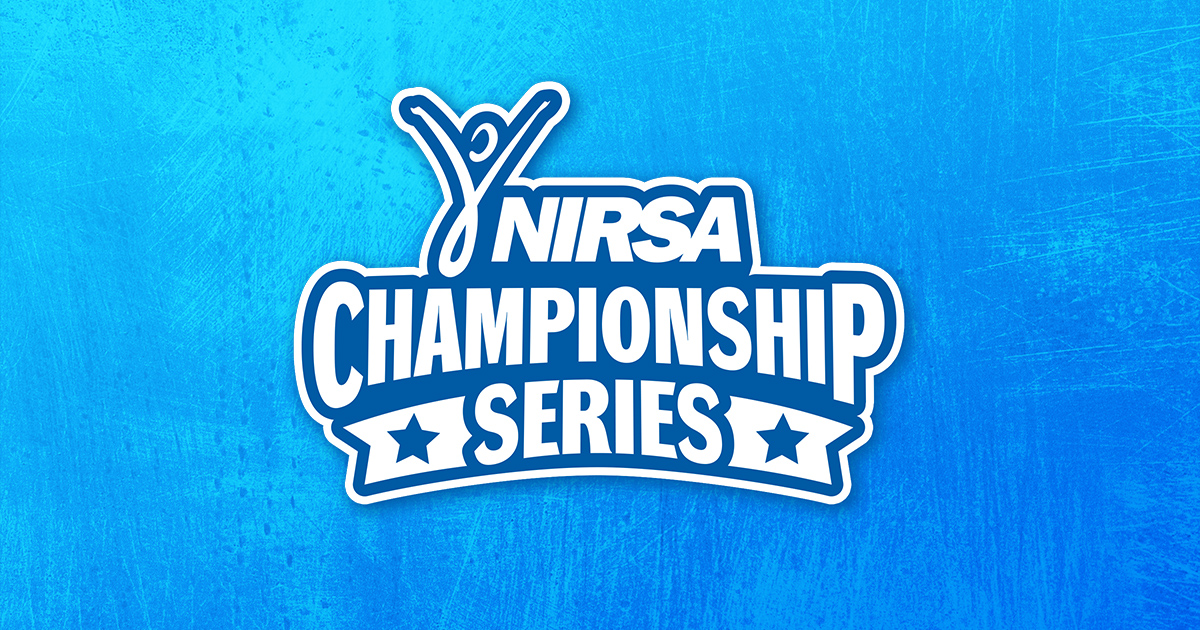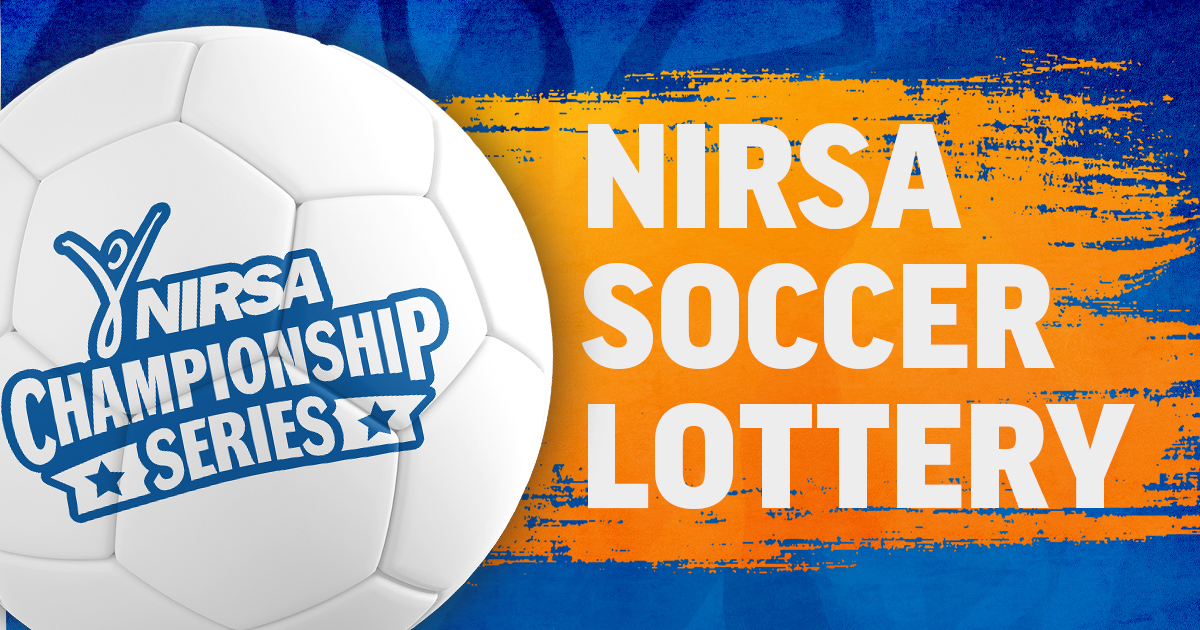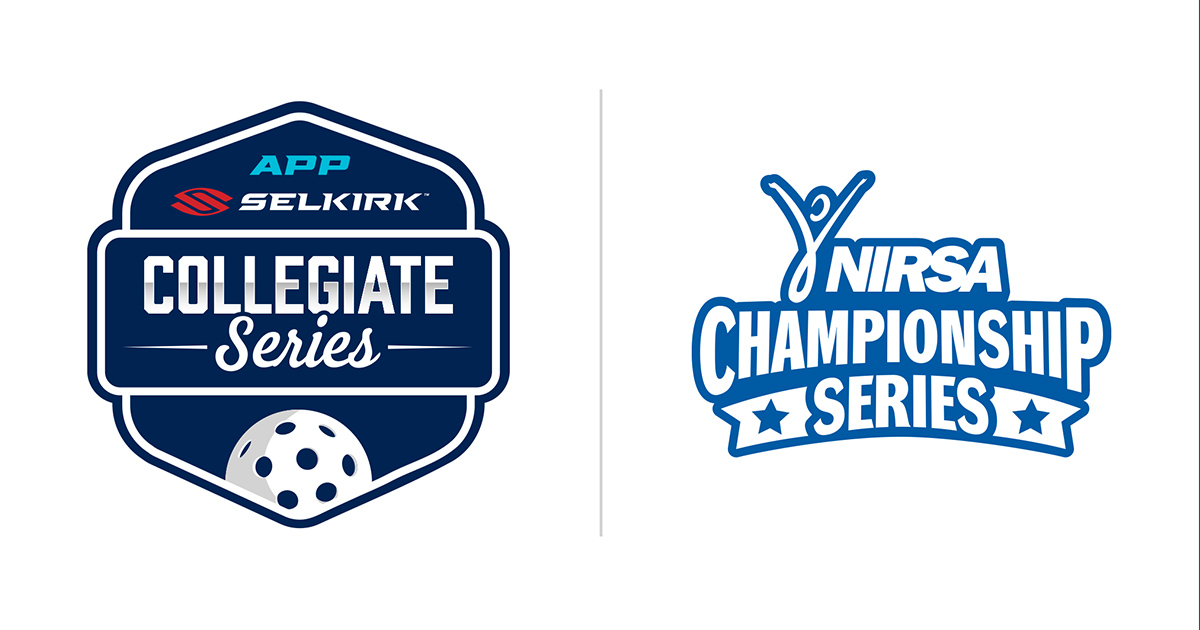NIRSA professional and student members are used to responding to challenges. But this spring, a new challenger—COVID-19—arrived at the door and packed a mean punch. All of a sudden, our recreation facilities were closed, our participants all moved their activities to a virtual landscape, and many of the events that had been planned and anticipated for months—such as the NIRSA Championship Series National Basketball Tournament and the Tennis On Campus National Championship—were cancelled.
At the same time, however, COVID-19’s residual impact also created an opportunity for NIRSA professionals to once again showcase why we’re such a signature piece of the student experience. Over the past few weeks, countless universities have moved their collegiate recreation offerings to the virtual world—from educational sessions to exercise routines to the increase of esport offerings and even the creation of an inaugural national collegiate trivia competition.
The NIRSA Championship Series has also had to adapt, leading to the first National Basketball Officials Clinic to be hosted via Zoom. Many NIRSA professionals can track their officiating origins to their experiences working at a NIRSA Championship Series event. We remember the mentors who taught us, the friends who journeyed with us, and the participants who competed to give us a chance to learn and improve. Close to 90 officials who applied for a chance to be a part of this year’s national basketball tournament almost didn’t get a chance to realize their dreams. However, in true NIRSA fashion, this meant it was time to respond to yet another challenge—to innovate and collaborate to turn the sad news of a cancelled tournament into a creative opportunity for learning and engagement.
Almost six hours of content from numerous presenters and guest speakers filled a Friday afternoon with many signature moments for over 100 participants. And so I’m here to take you through the journeys of several leaders who helped make this first virtual officials clinic a reality. I think what you’ll find is that while the participants came to learn about officiating mechanics, positioning, and philosophies, they left with an invaluable experience that will serve them in all walks of life.
“Quality officiating enhances the game experience”
Jon Broska, Associate Director, Sport Programs at the University of Florida, started his officiating career as a student at the University of Central Florida. He credits a lot of his start in this field to officiating extramural tournaments as a young student. Now sporting almost two decades of experience officiating at the collegiate level, Jon was slated to serve as the Officials Committee Co-Director at this year’s national basketball tournament.
When COVID-19 had other plans for sports and life as we know it this spring, Jon and his team were able to pivot and find another way to engage officials during this unprecedented time. “I felt like it brought a sense of normalcy to people’s lives even for a brief amount of time, and that’s more important than ever in today’s environment,” Jon stated when asked about the clinic. Over 100 student officials and NIRSA professionals registered to participate in this unique experience, and the response was overwhelming. “For me, the most impactful part of the clinic was reading so many of the comments during the chat. Students asked so many great questions which showed an advanced level of understanding and a willingness to learn more,” said Jon. “From a participant perspective, the quality of the game experience is one of the main factors contributing to participant satisfaction, and no one factor weighs more heavily on that than the quality of the officials.” For these officials to contribute so much of their time to learning and development—even in the absence of actual games that would allow them to work on their craft—demonstrates their commitment to advancing the game and serving our participants well in the future.
“This is the future of college basketball”
One of the traits that adds great value to the officials development program is the presence of highly qualified guest speakers. Often, these distinguished guests speak very highly of the training and mentorship that student officials receive coming up through the NIRSA Championship Series. “You are taught so well in the NIRSA program,” observed Division II National Officials Coordinator John Blazek in his opening speech. “Your NIRSA leaders have done an unbelievable job in teaching you to stay humble.”
John went on to detail how the “little things matter”—a phrase often heard throughout our collegiate recreation landscape no matter the program area. Whether it’s a first-time interaction with a new student on campus, the little bit of extra time and attention we take to ensure that a facility is safe and clean, or perhaps the words of encouragement an instructor might lend to motivate a client or class, we understand how the little things make a big difference. In officiating, participants learned from John that often it’s the details outside the lines that separate the good from the great. Showing up on time, learning how to communicate with people (teammates, coaches, and players), and how to be resilient after having a tough night are all skills that transcend the officiating world.
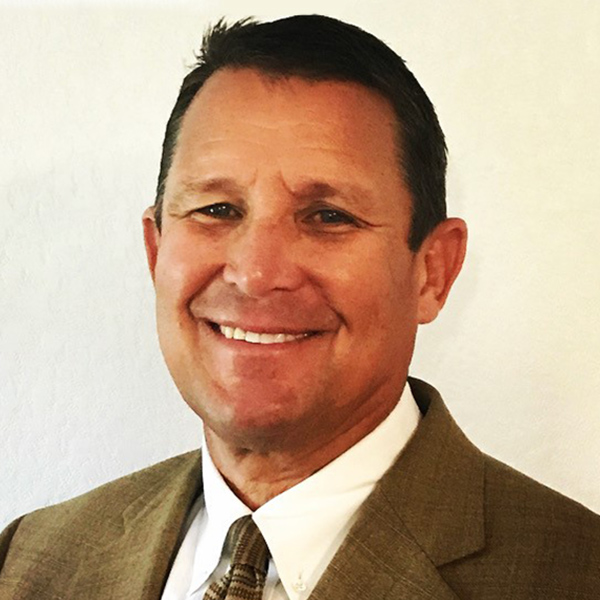 John Blazek
John BlazekJohn Blazek is one of many officiating assignors and coordinators at both the college level and in the professional ranks who have attended a NIRSA Championship Series event looking for new talent. Thanks in many ways to the foundational education delivered at Series events, NIRSA students continue to have success earning opportunities at every single level of high school and college basketball. This success includes advancing to the NCAA tournament level. Other students have been selected for the NBA grassroots officiating program with several graduating to the professional ranks and pursuing officiating as a full-time career.
“If you want to go far, go together”
The dynamic duo of Bonnie Hainline, Assistant Director of Intramurals and Sport Clubs at Southern Methodist University, and Sheldon Tate, Assistant Director at Texas Christian University, has been going strong for over a decade now. They served the community of Oklahoma State University as graduate assistants and are now NIRSA colleagues and friends in the state of Texas.
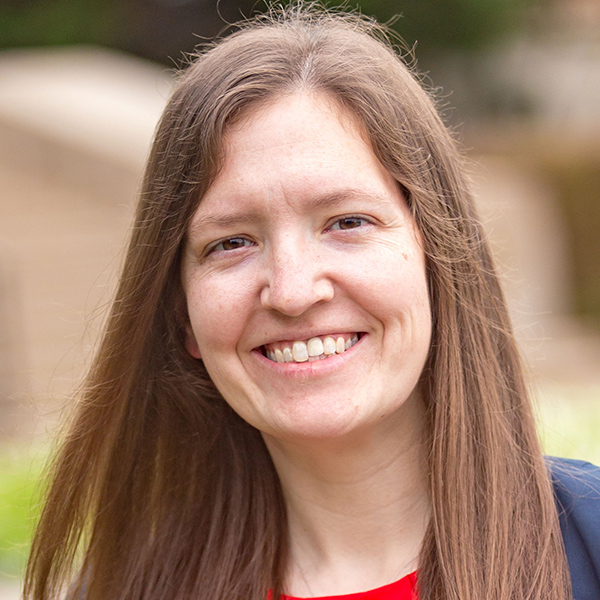 Bonnie Hainline
Bonnie Hainline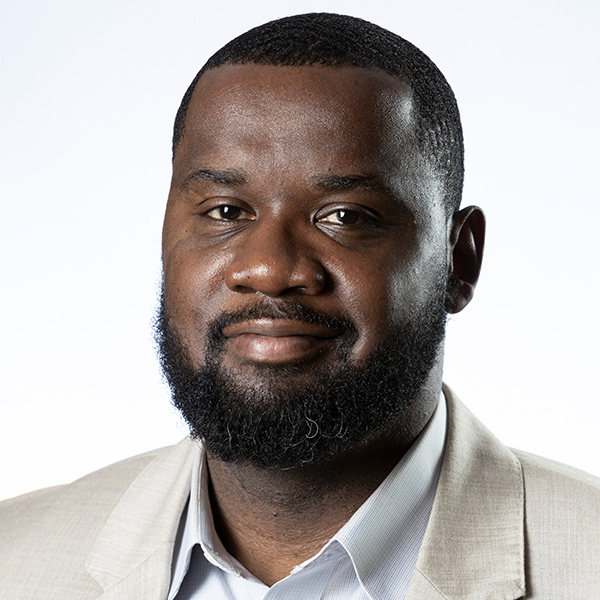 Sheldon Tate
Sheldon TateBonnie and Sheldon spoke on teamwork in a session packed with information about transferrable skills. Developing good chemistry is essential in officiating, and that starts well before the crew takes the court together to work a game. Having an effective pregame establishes the framework for the team, allows officials to get to learn a little more about each other’s backgrounds and experiences, and starts building a foundation of trust that is crucial for success. How well that foundation is built can be traced back to the leadership qualities of the crew chief. In fact, when webinar participants were polled to identify the most important traits of a good leader, hard skills (rules knowledge) ranked way behind soft skills or leadership skills (communication, appearing personable, and being supportive).
Great leaders demonstrate care for their teammates, help put people in the best positions to succeed, and take the spotlight off themselves for the betterment of the crew. Officiating teaches people how to communicate in high pressure situations and how to navigate multiple personality types. In basketball, crews often change by the game, so establishing a sense of cohesion can be challenging. This makes the development of a solid pregame instrumental every night. Bonnie and Sheldon concluded their session by talking about the importance of inclusion. Inviting others on your crew to contribute with questions like “What do you have?” and “What did I miss?” can help break down walls and instill a level of confidence in the idea that every person matters on the crew.
“It’s not about who’s right, but what’s right”
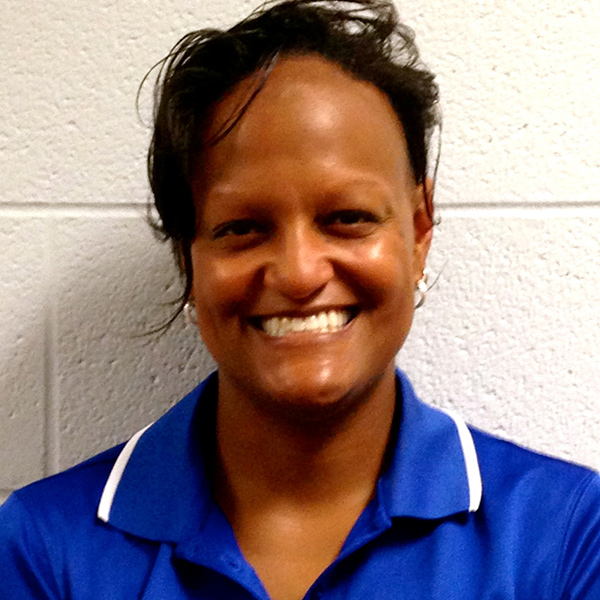 Natosha Harris
Natosha HarrisOfficiating is a consistent test of a person’s character. In a position that invites conflict, developing skills to effectively and efficiently resolve issues within the scope of a written rule set—and with external, dynamic influencers such as coaches, players, fans, and even your partners—is paramount. “We have to have the courage to do what we need to do,” Officials Committee Co-Director and Intramural Director at the University of Kentucky Natosha Harris boldly remarked during her lecture on partnering. “It’s not about you, it’s about the game.”
Natosha showed clips of several high impact and unusual situations where officials had to utilize multiple skills to get the play correct. Just as in life, not all situations are covered in a manual. Officials are asked to have a knowledge of the rules, but the most important thing is that they understand how to adjudicate and communicate their decisions. That can sometimes mean having to help or even correct a partner for the betterment of the game.
Natosha added that officials must “understand how your actions impact people” when highlighting how good partnering means more than just getting the call right. Being an official will test a person’s boundaries as mistakes are part of the gig. How we respond to those mistakes is the true mark of one’s character and is the ultimate decider for our pass/fail status in the officiating world. “Embrace the mistake and share the experience,” concluded Natosha, who currently works in several Division I conferences in the NCAA with multiple postseason appearances at different levels.
“Film breakdown is not just simply about whether you got the play right or wrong”
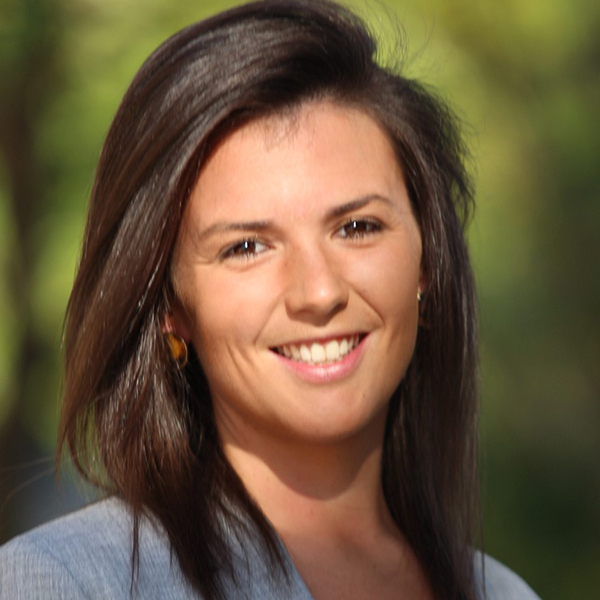 Kara Hunter
Kara HunterOfficiating can be a very humbling profession. As technology has progressed and advanced our profession, the evaluation and scrutiny over calls has also increased at a commensurate rate. Film breakdown is the best method for improving and advancing as an official because, as we often say, “The tape doesn’t lie.” Side note: This is a far better quote than the “Ball doesn’t lie,” which we often hear during games; the ball does not tell the truth either, but the tape does.
Kara Hunter, Assistant Director of Recreation and Wellness, Competitive Sports at Loyola University Maryland, led a session that was one of the favorites of the day. Kara’s film breakdown was detailed, intentional, and thought provoking. Using many clips of plays from her own games—games that illustrated how she could have improved—Kara took participants on a journey into those environments and situations while also diving into her and her partner’s mindsets.
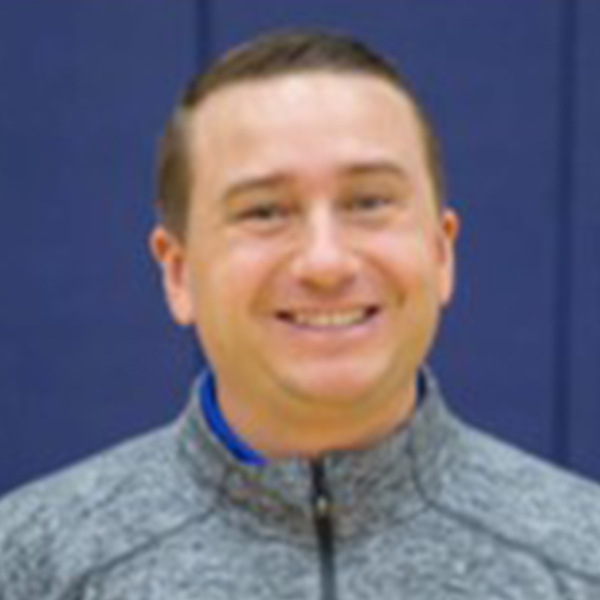 Rob Rorke
Rob Rorke“She is making herself vulnerable for self-improvement. That is clearly why she has success and has risen to the D1 level,” commented Rob Rourke of Court Club Elite. Kara described throughout the session how non-verbal cues, conscious or subconscious, can portray information about your mindset and decision-making process. “We need to make sure we are in a good position to make a good decision,” Bonnie Hainline had mentioned earlier in the clinic. Kara referred to this statement during her session. Good positioning is a prerequisite to getting a high percentage of your plays correct. A detailed look at angles and adjustments will provide critical information regarding the credibility of a call.
Kara’s humbling approach to this video breakdown provided a glimpse into another life lesson taught through the lens of an official. To quote Thomas Wayne from Christopher Nolan’s Batman trilogy: “Why do we fall? So we can learn to pick ourselves up.” The valuable information Kara shared during her session did not go unnoticed by many of the program participants. One exclaimed, “This was great, Kara! Thank you so much for putting yourself out there. The detail you put into your process is amazing.”
“Our involvement with NIRSA is probably our favorite event of the year.”
Court Club Elite Co-Founder Ed Rush and Director of Operations Rob Rorke have been great partners of the NIRSA Championship Series for many years. Their success both in their own officiating and in their development of such an influential training program for officials at all levels speaks for itself; however, it’s their ability to continue to relate officiating lessons to life that is even more impressive.
Ed, a former NBA official, discussed the need to have compassion and empathy while officiating. Breaking down barriers through preparation and mutual respect is a path to establishing great relationships. Rob led a session on situational game awareness that went beyond simply teaching an officiating lesson to be used on the basketball court. Multiple factors contribute to the perspective of every situation we face in a game. Change the factors and you can also change the perspective.
We’re gifted with several tools to help navigate each scenario. Those factors, or details, can play a huge role in which tool an official chooses to deploy in the moment. Rob and Ed both emphasized “process over outcome.” If you develop good processes in both officiating and in life, desired results will often follow.
“Today was four days of camp in a Zoom session”
Every summer, officials who want to add to their toolbox search for the best educational and identification camps offered all over the country. Judging from many of the comments made by participants who attended the virtual NIRSA National Basketball Student Officials Clinic, it seems that many believe they have already got a jump on officiating training this spring.
“To be able to take a challenging moment—a world with a COVID-19 pandemic that led to the cancellation of the NIRSA National Basketball Championships—and provide a positive opportunity for every student and professional was an amazing experience. It assisted participants in their development as officials in addition to boosting their personal and professional development,” said Michael Castaneda, Officials Committee Assistant Director and Assistant Director of Sport Programs at The University of Texas at San Antonio. “Opportunities like this are so important because we are not just developing students to become great officials. We are developing them into great leaders. We want to continue to pay it forward and provide these students with an opportunity to develop into outstanding individuals.”
Moments like these are why so many NIRSA professionals crave the ability to give back to the profession. Moments like these are why so many NIRSA Championship Series stakeholders contribute their time, talent, and treasure through the Student Officials Development Fund in hopes of improving the future for others. As I mentioned early in this article, many of us trace our professional paths to the positive influence that extramural tournaments had on us in our formative years. And while many NIRSA events contribute to the theoretical framework for professional development—offering insight and tools for becoming successful—it might be hard to find opportunities that exceed the practical experience gained through the NIRSA Championship Series’ officials development program. The skills gained can be utilized in many aspects of life and contribute to several of NIRSA’s strategic values.
Personally, I owe a lot of my development as a young official—and even my initial interest in the profession—to officiating at NIRSA Championship Series events. Officiating has forged countless memories, friendships, and lessons. I know I am not alone out there with this mindset. So, thank you to everybody who has contributed to the growth of one, two, or a hundred student officials. Your dedication contributes to making NIRSA special. Looking back through the comments provided by the participants of this first virtual officials clinic, these participants wholeheartedly agree that a strong focus on officials development contributes to a better association.
#NIRSAllofUs
Marty Dempsey is currently the Associate Director for Facility Operations at the University of Florida. He serves as Vice Chair of the NIRSA Championship Series Exec Work Team.



